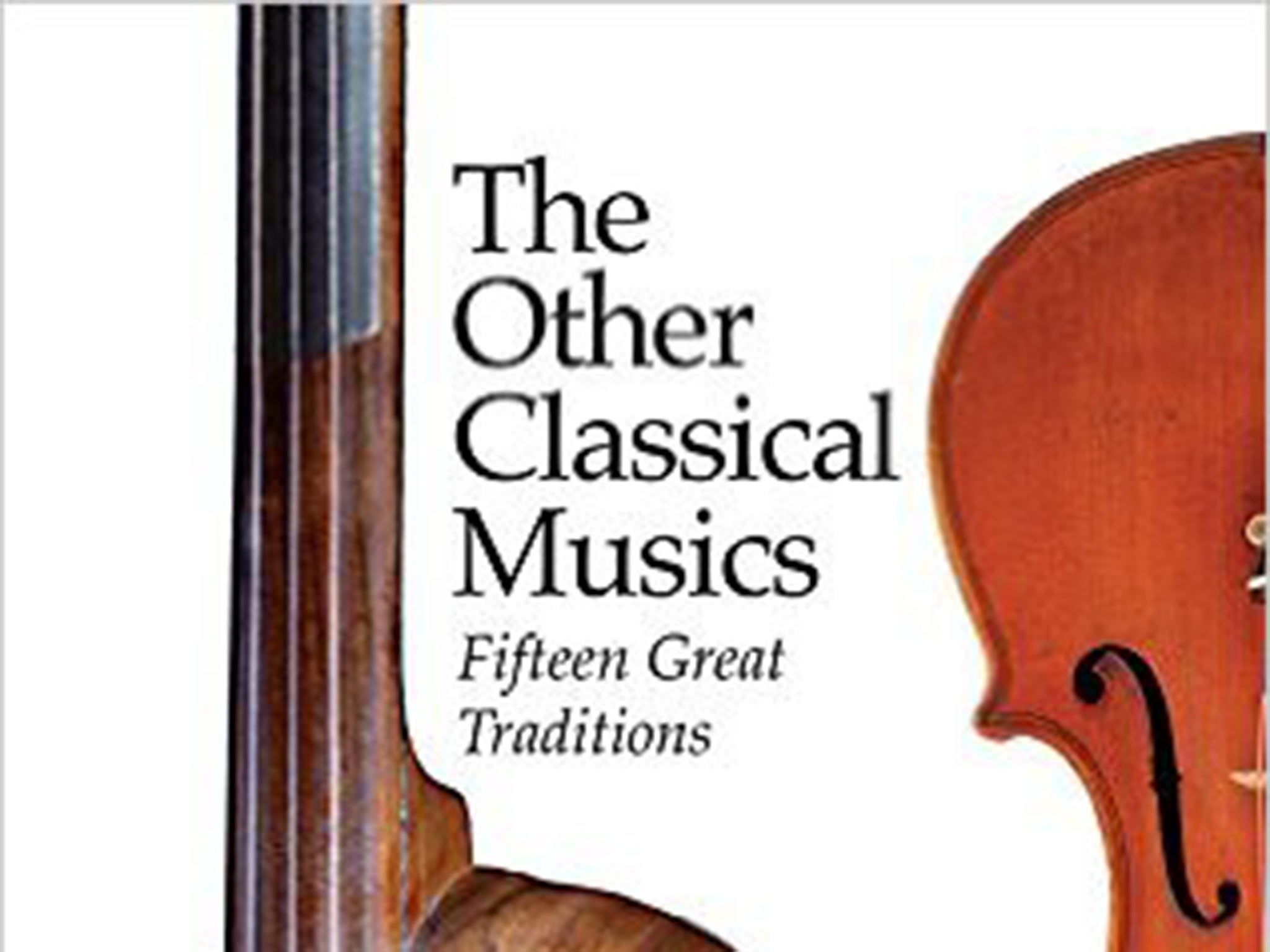The Other Classical Musics: Fifteen Great Traditions, edited by Michael Church, book review: An account of why the West isn’t best
Not even the most eclectic music-lover will come away from this book without having their curiosity piqued and their ears tantalised

Your support helps us to tell the story
From reproductive rights to climate change to Big Tech, The Independent is on the ground when the story is developing. Whether it's investigating the financials of Elon Musk's pro-Trump PAC or producing our latest documentary, 'The A Word', which shines a light on the American women fighting for reproductive rights, we know how important it is to parse out the facts from the messaging.
At such a critical moment in US history, we need reporters on the ground. Your donation allows us to keep sending journalists to speak to both sides of the story.
The Independent is trusted by Americans across the entire political spectrum. And unlike many other quality news outlets, we choose not to lock Americans out of our reporting and analysis with paywalls. We believe quality journalism should be available to everyone, paid for by those who can afford it.
Your support makes all the difference.In 1932, King Fu’ad of Egypt hosted what Michael Church calls “an extraordinary conference” in Cairo. With foreign composers such as Paul Hindemith and Béla Bartók in attendance, it aimed to “modernise” Egypt’s ancient musical traditions by forcibly squeezing them into a Western mould: European scales, notation and even a piano retooled to play Arab quarter-tones included. Plus ça change… Time and again, that breakout second or third album still liquidises non-Western singers and groups into banal electro-pop. The colonisation of sounds and skills continues apace, with “world music” – that bastard child of marketing and anthropology – the latest homogenising force.
Church, music critic for this newspaper, has orchestrated a truly invaluable volume. From Thailand to Tajikistan, these 15 reader-friendly essays by experts introduce a worldwide range of “classical” practices in composition and performance. Inevitably, that key term stays fluid, although Church makes a brave stab at defining a “classical” tradition, from “built-in continuity” and “a quasi-priesthood of professionals” to high-status patronage and “the evolution of a canon”. He also harmonises the format of each essay. An opening snapshot of a typical performance leads into a succinct account of history, instruments, genres and the state of the art now: whether gamelan in Java, Chinese opera, the “Mande Jaliyaa” of West Africa or the Karnatak ensembles of south India. Anyone willing to open minds and ears to “humanity’s most sophisticated communal achievements in musical creation” will find a sumptuous treasure-house in this encyclopaedic survey.
Where non-European figures and forms have impinged on Western taste, from Benjamin Britten’s use of the gamelan to the Shankar sitar dynasty or Malian kora masters such as Toumani Diabaté, the book will uncover the roots and trace the branches of their art. It also raises the curtain on little-known landscapes of musical excellence, such as those of Central Asia.
Three especially rich cultures – China, India and the Muslim Arab world – rate two essays apiece. This leads to some repetition, but then most readers will not devour the book at a single gulp. Not every candidate region finds a place. On our doorstep, I wondered if the courtly and refined traditions of Ireland, Wales and Scotland might have warranted a chapter. Still, not even the most eclectic music-lover will come away from this book without having their curiosity piqued and their ears tantalised.
Order for £22 (free p&p) from the Independent Bookshop: 08430 600 030
Join our commenting forum
Join thought-provoking conversations, follow other Independent readers and see their replies
Comments